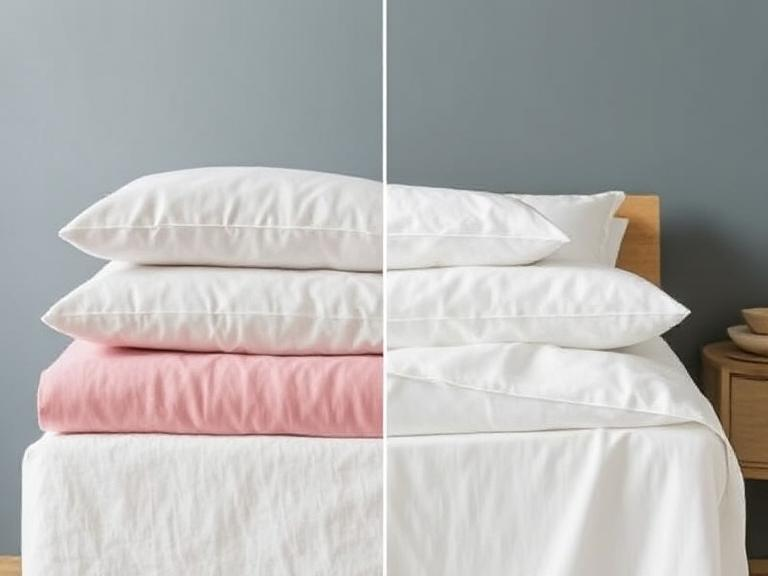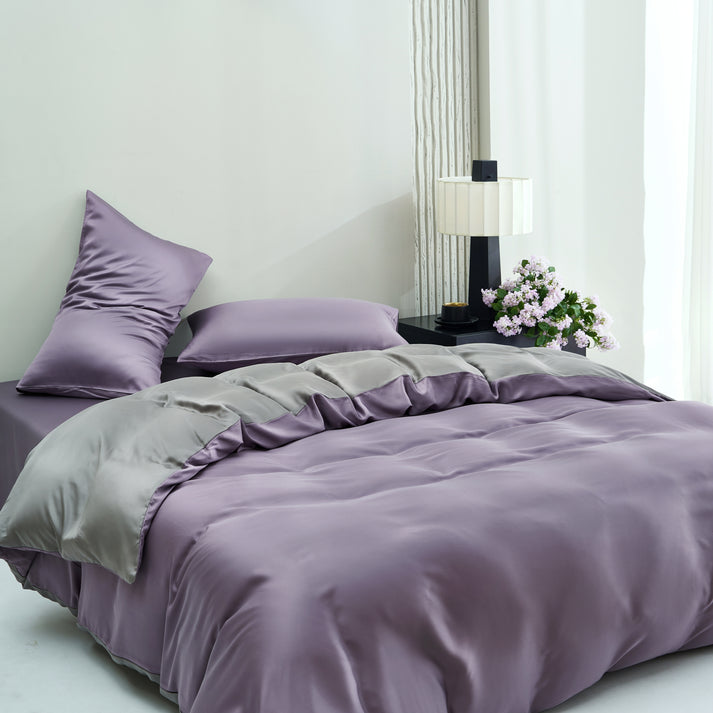
Tencel Lyocell Sheets vs Cotton: Which is Better for Your Sleep?
Share
Table of Contents
- Introduction
- What is Tencel Lyocell?
- What is Cotton?
- Tencel Lyocell vs Cotton: A Detailed Comparison
- Why Choose Wildnace CLOUDTOUCH 100% Lyocell+ Duvet Cover
- Eco-Friendliness and Sustainability
- Who Should Choose Tencel or Cotton?
- Care and Maintenance
- Key Takeaways Summary Table
Introduction
When it comes to choosing the right bedding, the debate between Tencel lyocell sheets vs cotton continues to gain attention. Both fabrics are popular choices for comfort, durability, and breathability—but which one is better? Tencel Lyocell is often praised for its softness and sustainability, while cotton is a well-established classic in the bedding world. In this article, we compare these two fabrics across various dimensions to help you make an informed decision for your best night’s sleep.

What is Tencel Lyocell?
Tencel Lyocell is a branded type of lyocell fiber made from wood pulp, primarily sourced from eucalyptus trees. Produced by Lenzing AG, the process is known for being eco-friendly, using a closed-loop system that recycles water and solvents.
Key Features of Tencel Lyocell:
- Silky-smooth texture
- Excellent moisture-wicking
- Highly breathable and cooling
- Hypoallergenic and gentle on sensitive skin
- Eco-conscious production process
What is Cotton?
Cotton is a natural fiber that comes from the seed hairs of the cotton plant. It has been used for centuries and is one of the most widely produced and used textiles globally.
Key Features of Cotton:
- Soft and durable
- Highly breathable
- Absorbent and versatile
- Comes in different weaves and qualities (e.g., Egyptian, Pima)
- Widely available and affordable
Tencel Lyocell vs Cotton: A Detailed Comparison
Let’s explore how Tencel Lyocell and Cotton compare across crucial bedding factors.
1. Softness and Feel
- Tencel: Feels buttery-soft with a silky, luxurious drape.
- Cotton: Soft but varies depending on thread count and weave.
2. Breathability and Temperature Regulation
- Tencel: Naturally cooling and moisture-wicking, great for hot sleepers.
- Cotton: Breathable but retains more moisture, making it warmer.
3. Sustainability
- Tencel: Produced via a closed-loop process using renewable resources.
- Cotton: Organic cotton is sustainable, but conventional cotton is water-intensive and pesticide-heavy.
4. Durability
- Tencel: Strong when dry and resistant to wear; may be more delicate than cotton when wet.
- Cotton: Very durable, especially high-quality long-staple cotton.
5. Skin Sensitivity
- Tencel: Hypoallergenic and ideal for sensitive skin.
- Cotton: Generally skin-friendly but depends on the dye and processing used.
6. Price
- Tencel: Usually more expensive due to the sustainable process and luxury feel.
- Cotton: Wide price range; budget to luxury options available.
Why Choose Wildnace CLOUDTOUCH 100% Lyocell+ Duvet Cover

If you’re leaning toward Tencel, the Wildnace CLOUDTOUCH 100% Lyocell+ Duvet Cover is an exceptional choice.
Highlights of Wildnace CLOUDTOUCH:
- The Feel: Silky-smooth and refreshingly cool — perfect for hot sleepers.
- Material: Made from 100% lyocell, offering a natural cooling effect.
- Design: Features a fluid drape with a reversible design to change up your bedroom look easily.
- Moisture-Wicking: Keeps you cool and dry all night long.
This duvet cover combines elegance, sustainability, and supreme comfort, making it a standout choice for modern bedding.
Eco-Friendliness and Sustainability
Tencel’s Green Advantage:
- Sourced from FSC-certified eucalyptus forests
- Low-impact dyes and closed-loop water system
- Biodegradable and compostable
Comparing with Cotton:
- Conventional cotton uses large amounts of water and pesticides
- Organic cotton is more eco-friendly but harder to verify
Verdict: Tencel Lyocell is widely regarded as a more sustainable choice compared to regular cotton.
Who Should Choose Tencel or Cotton?

Choose Tencel Lyocell if you:
- Sleep hot or sweat at night
- Prefer silky, cool, luxurious bedding
- Want a sustainable and eco-conscious product
- Have sensitive skin or allergies
Choose Cotton if you:
- Prefer a crisp, traditional bedding feel
- Want a wide range of prices and weave types
- Prioritize durability and longevity
- Are okay with more moisture absorption
Care and Maintenance
How to Care for Tencel Bedding:
- Machine wash cold, gentle cycle
- Use mild detergent; avoid bleach
- Tumble dry low or hang dry
- Avoid high heat to maintain fabric strength
How to Care for Cotton Bedding:
- Machine wash warm or cold
- Can use stronger detergents
- More resistant to high heat in drying
- Wrinkles easily unless treated or ironed
Key Takeaways Summary Table
| Category | Tencel Lyocell | Cotton |
|---|---|---|
| Softness | Silky-smooth, luxurious | Soft, varies by type |
| Breathability | Highly breathable & cool | Good, but less moisture control |
| Eco-Friendliness | Very high (closed-loop, sustainable) | Medium (organic cotton is better) |
| Durability | Strong, but needs care | Very durable |
| Skin-Friendliness | Hypoallergenic | Skin-friendly |
| Price | Premium | Wide range |
| Recommended Product | Wildnace CLOUDTOUCH Duvet Cover | Various options |
Conclusion: While both Tencel lyocell and cotton have their unique strengths, Tencel stands out in terms of sustainability, softness, and comfort—especially for hot or sensitive sleepers. The Wildnace CLOUDTOUCH 100% Lyocell+ Duvet Cover is a luxurious, high-performance example of why this modern material is quickly becoming a favorite among conscious consumers.
